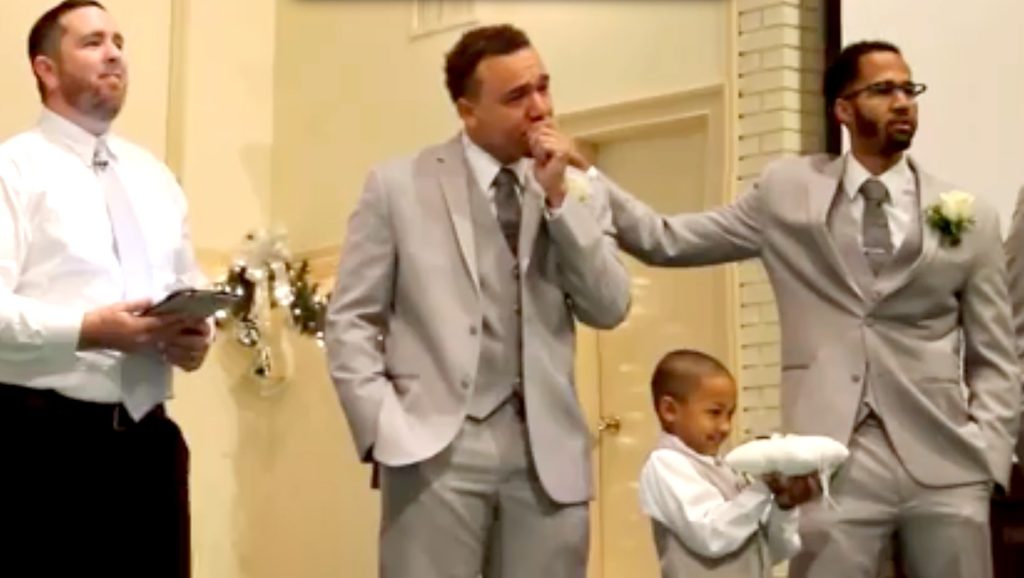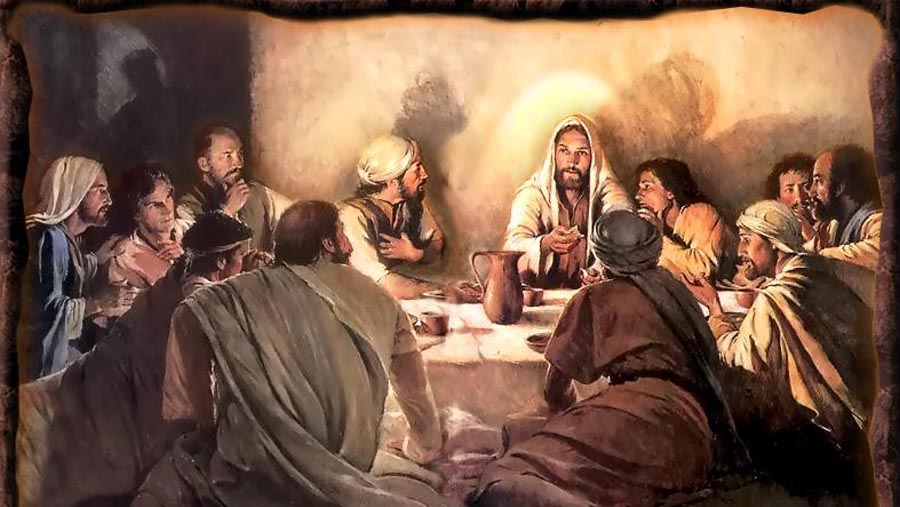My kids tell me I’ve ripped this off from the movie “27 Dresses” which, as God is my witness, I’ve never seen. But when I’m at a wedding and the bride makes her appearance at the back of the church and begins to walk down that center aisle, I do turn my attention to the groom. I want to watch the groom as he sees his beautiful bride. Because the way that groom looks at the bride is the way our God looks at his Church.
Scripture tells us that God wants to be much more to us than just a mighty king with loyal subjects. He wants to be the groom to the bride. He wants a relationship of intimate love with us as profound and eternal as that between a husband and a wife. God calls himself the groom throughout the Old Testament.
“‘They broke my covenant, though I was a husband to them,’ declares the Lord.” ~Jeremiah 31:32
Jesus calls himself the groom in the Gospels and compares the Kingdom of God to a massive wedding feast.
“How can the guests of the groom fast while he is with them?” ~Mark 2:19
“The Kingdom of heaven is like a king who prepared a wedding banquet for his son… All things are ready! Come to the wedding banquet!” ~Matthew 22:1-4
And at the end of time, when everything is finally made right and all of our Father’s plans have culminated in the new heavens and new earth and perfectly righteous relationships with him and one another, there’s going to be a wedding feast to end all wedding feasts!
“I saw the Holy City, the new Jerusalem, coming down out of heaven from God, prepared as a bride beautifully dressed for her husband.” ~Revelation 21:2
“Blessed are those who are invited to the wedding supper of the Lamb!” ~Revelation 19:9
This coming feast celebrates finally the intimate and permanent union of God and his people. This is how history ends. This is what God is doing.
When God uses a metaphor to help us see him better, it also helps us better understand how he sees us. God calls us his Father, he calls us his children, and then Jesus says, “If you know how to give good gifts to your children, how much more…?”
If God is our groom, then he must really love us. He must truly delight in us.
What does the bride look like when she walks down that aisle? How does her groom see her? Have you ever watched the groom?
When the groom sees her, he’s absolutely delighted. You can see the love in his eyes. You can almost feel the commitment in his heart. You can sense the complete devotion to her in the deepest part of his soul. He’ll do anything for her for the rest of his life, he’ll stop at nothing to protect her and provide for her and please her, he’ll dedicate his whole existence to loving her forever — you can see it in the way he looks at her!
How dare our Lord use a metaphor like that! How dare the Scriptures tap into this really powerful image and its accompanying emotions!
Could it be that he really loves us like that? That he really loves you that much? That God is that committed to you?
How different would your life be if you lived every day — hour by hour, moment by moment — in the awareness of God’s great love for you? He’s looking at you right now. He thinks you’re beautiful. He’s proud of you. And he loves you more than our words can describe.
Peace,
Allan








Recent Comments